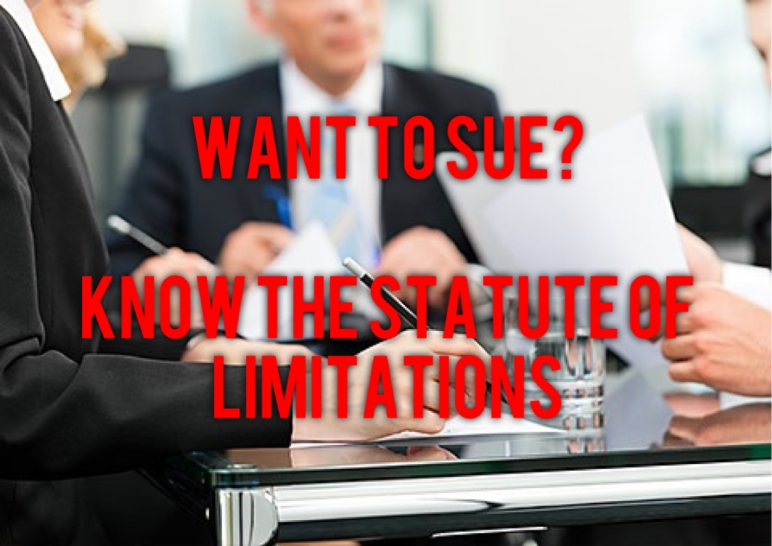In the last couple of weeks I have seen an increasing amount of demand letters threatening litigation or actual lawsuits based on alleged claims that are far outside of the statute of limitations. A statute of limitations is the law which defines a period of limitation for bringing certain types of legal actions. Most statute of limitations are between one (1) year and six (6) years depending on the claim. When a lay person doesn’t know and sends the demand letter or files the complaint I can kind of understand that. Some people don’t even think about things like that. While ignorance of the law isn’t a real excuse, it is often looked at with a softer lens by many. When it is an attorney who does this kind of stuff – I’m sorry, it’s absolutely not excusable. Indeed, I have seen MANY attorneys make this mistake and it upsets me – not only because it makes other attorneys in the profession look bad but I also feel for the attorney’s client who probably paid for that mistake because they didn’t know better.
An attorney should not be taking a client’s hard earned money to draft a meritless demand letter or complaint! If your attorney is worth their weight in salt they will spend the time necessary to do the research and will be honest and tell you when your case has no merit… not just take your money and set YOU up for failure. In fact, such conduct isn’t in line with the Professional Rules of Conduct. While states typically have their own rules of professional conduct, also known as the Rules of Ethics, it is pretty clear that the American Bar Association’s Model Rules of Professional Conduct, Rule 3.1, says this kind of crap is a no-no. See the pertinent excerpt below:
Advocate
Rule 3.1 Meritorious Claims And ContentionsA lawyer shall not bring or defend a proceeding, or assert or controvert an issue therein, unless there is a basis in law and fact for doing so that is not frivolous, which includes a good faith argument for an extension, modification or reversal of existing law…
It seems that the moment someone feels wronged in some way someone, that person’s first line of thinking tends to be “I’m gonna sue!” I see that written and posted online all over the place or hear it in general conversation. The problem is there are indeed times when you don’t have the legal standing to sue. Some of the first questions to your attorney should include:
- What kinds of claims might I have given my situation?
- What are the applicable Statute of Limitations to those claims?
- Are any of my claims within those Statute of Limitations?
- Are there any viable exceptions to those Statute of Limitations?
If the answers regarding question nos. three and/or four above is “NO” then don’t ask your attorney to draft a demand letter threatening legal action for those claims and certainly don’t ask them to draft a complaint anyway. Similarly, don’t let your attorney talk you into drafting a demand letter threatening litigation or actually filing a meritless complaint. You will only be footing the bill to fail – and filing fees, process server fees, and the time that your attorney will charge you to draft the bogus letter or complaint will only hurt YOUR pocket book. And, to add salt to the wound, there is a chance that the Defendant could turn around and sue both you, and your attorney, for malicious prosecution. It happens…and you could end up paying for not only your attorney’s fees BUT the attorneys’ fees of the other party as well.
Long story short – know the statute of limitations for bringing claims and don’t waste time and resources on frivolous demand letters and complaints. It will save you a lot of time, money and other resources in the end.
If you are in Arizona, and have questions about statute of limitations for a particular claim in Arizona, feel free to contact me.


2 thoughts on “Statute of Limitations is a real thing and why you, a client, should understand it.”